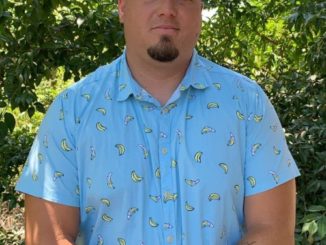
As both a hospital administrator and family medicine physician in Chico, Dr. Marcia Nelson has had a bird’s-eye view of the COVID-19 pandemic. Enloe Medical Center, where she’s vice president for medical affairs, has treated some of the sickest residents in Butte County, where 156 (as of Feb. 18) have died of the disease and 10,617 have been infected.
A subset of coronavirus patients—10 percent, according to studies—have protracted battles. They suffer from a condition called “long-haul COVID,” in which symptoms persist far beyond the course of the disease.
“I have seen first-hand the just life-changing impact that what seemed like a rather mild illness can have in terms of creating long-term health issues—mental health [and] physical health issues,” Nelson said in a phone interview.
Doctors have a tough time diagnosing “long-haulers.” Their symptoms—notably fatigue, pain, headaches, sleep issues, headaches and brain fog—mirror other syndromes; they’re also hard to identify with testing. Moreover, researchers and doctors remain in the early days of discoveries about this “novel” (i.e., “new”) virus that has been around for just over a year.
“Of course we don’t know a lot about [the virus]—we can’t know a lot about it,” Nelson said. “We know enough about it to make vaccines against it, and some different treatments against it; but this is still a new illness, so of course we’re not going to know everything, and we’re going to be learning as we go.
“I think it’s important for us in medicine to keep an open mind and listen to our patients about what they’re experiencing, because we’re all learning together.”

That’s the mission at UC Davis’ Post-COVID-19 Clinic. Established in the fall, the facility is one of a handful in the country (Stanford and UC San Francisco have similar programs) that exclusively treats patients with “continuing, often perplexing symptoms”—those with long-haul COVID as well as others with lingering issues. (According to a recent non-peer-reviewed study by Houston Methodist Research Institute, up to 80 percent of all coronavirus patients could experience some form of post-virus impairment—from depression to hair loss.) In both cases, debilitation may continue for months, and there are reports of long-haulers who have been experiencing symptoms for nearly a year.
Dr. Christian Sandrock, professor of pulmonary and critical care medicine, told the CN&R that the team (which included him) that launched the UC Davis clinic hopes to gain insight into long-haul COVID, but first and foremost to offer aid and the most current information. He’s treated patients from around the North State—including Chico—and as far away as Seattle via telemedicine.
“I don’t know the full end result of having a clinic,” he said by phone. “Our goal is, obviously, to take our patients seriously and provide them care. A lot of patients who had chronic fatigue or nebulous brain fog symptoms, it’s hard to classify those diseases. We want those patients to feel heard, to know that we are seeing deficits, and that we are able to give them that support, because I think that’s a nice starting point. And, secondarily, at least provide the best treatment.
“We are an academic center; most of us are trying to keep up on the literature and have active relationships with our colleagues around the country, whether it’s the Mayo Clinic, or in New York, or in Boston. This way we can … put our heads together as a group and really provide that level of care here that they would get traveling anywhere else around the country.”
What’s known—and not
Long-haulers have symptoms that persist despite having recovered from and tested negative for COVID-19, and the syndrome has even impacted young adults without pre-existing health issues as well as those who had relatively mild cases of coronavirus. Many long-haulers never received an initial diagnoses of coronavirus, as they may have contracted COVID before widespread testing yet still endure symptoms. Complicating matters is the fact that patients may develop symptoms distinct from what they experienced when they had the virus.
“Just a plethora of symptoms,” Sandrock said, “and that seems to be a different process than what we’re seeing in our classic ICU patients. Now a lot of this does overlap, but a lot of those patients who have these long-terms symptoms may not have been hospitalized, may not have had what was thought of as severe COVID.”

Many long-haulers suffer privately. The CN&R reached out to multiple local patients; fatigue limited their availability for interviews, and none would speak without conditions of anonymity.
Celebrities such as athlete Asia Durr have been more vocal, having shared her story with ESPN and HBO. Durr, a young and previously healthy pro basketball player with the New York Liberty of the WNBA, felt ill for eight months post-COVID, with nausea, fatigue, heart palpitations, headache and issues with mental focus.
Sandrock said medical researchers have a good sense of what causes the long-term effects, less so what to do about it. This coronavirus causes patients to become thrombogenic, or prone to clotting in the lining of blood vessels. He explained that some people have this “at the microvascular level, at the small capillaries, and that often eludes regular diagnostic testing.”
In other words, a long-hauler may have clots too small to register on an MRI or CT scan, yet starving tissues by blocking vessels.
“That’s why you find people who seem normal, but the second they walk, their oxygen level drops,” Sandrock continued. “Or they have brain fog because they’re getting limited blood flow to the brain.
“The big question is we don’t necessarily what to do with it. So some people we can put on blood thinner and they get better; but other people, their numbers look normal, and is it really worth putting them on a blood thinner when they have a risk of bleeding and other side effects from it? So really figuring this out has been a bit of a challenge.”
Having treated hundreds of coronavirus patients, between the hospital and clinic, Sandrock offered this message:
“COVID is not like the flu; it’s a lot worse than the flu. There are a large number of patients who have long-term symptoms. We don’t know if those symptoms last forever.
“The big thing is, if you’ve had COVID and you have lingering symptoms, you’re not crazy—they are real, don’t explain them away. See somebody and get them checked out so we can actually figure out what’s the best option and where your deficits are.”




Be the first to comment